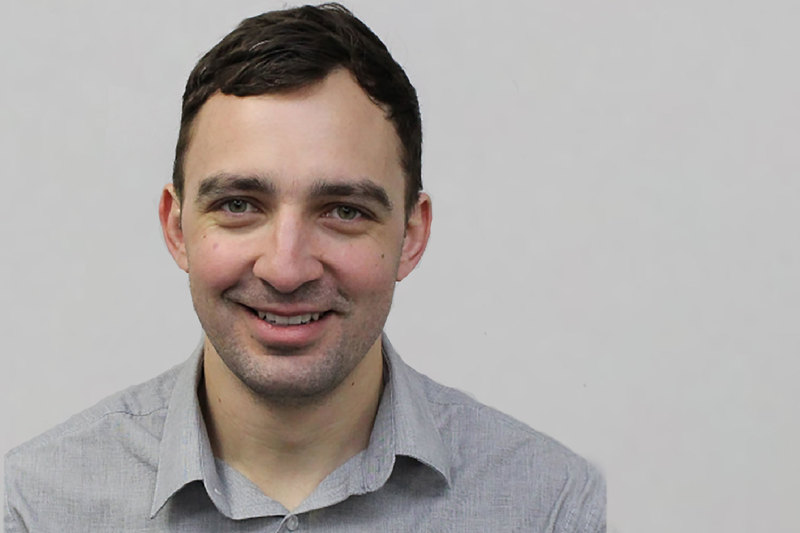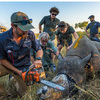Young UCT scientist selected as one of esteemed global Schmidt Science Fellows
04 August 2022 | Story Thami Nkwanyane. Photo Supplied. Read time 5 min.
Geomagnetic currents fundi and University of Cape Town’s (UCT) National Astrophysics and Space Science Programme (NASSP) graduate Dr Michael Heyns has been announced as one of the esteemed 2022 Schmidt Science Fellows by philanthropists Eric and Wendy Schmidt.
The 29 new fellows are a group of exceptional early-career scientists from around the world, each committed to transcending disciplines to advance discovery and driving innovation that improves the quality of life for all.
Eric Schmidt, the co-founder of Schmidt Futures and former Google chairman and chief executive officer, said: “Our latest group of Schmidt Science Fellows embodies our vision for this programme at its inception five years ago. We find the most talented next-generation leaders from around the world and back these impressive young adults with the resources and networks they need to realise their full potential while addressing some of the big scientific questions facing the world. Congratulations to the 2022 Schmidt Science Fellows, I am excited to see where your science takes you and what you will achieve.”
Dr Heyns’ PhD involved research focused on improving the operational modelling of geomagnetic fields and geomagnetically induced currents (GIC) for utilities. He plans to harness computational physics to help us better understand the fundamental phenomena underlying space weather events, such as solar storms. He aims to increase the resilience of modern infrastructure in the face of extreme space weather events. His journey at UCT started with a BSc majoring in physics and applied mathematics in 2012.
“I found a real passion for interdisciplinary research and really enjoyed the connectedness of the research community in astrophysics and space science in South Africa.”
“Following on from this, I was fortunate enough to continue with an honours degree as part of NASSP. At that time NASSP was hosted at UCT and brought together students and research groups from around the country. In NASSP, I found a real passion for interdisciplinary research and really enjoyed the connectedness of the research community in astrophysics and space science in South Africa,” he said.
He then continued with a NASSP master’s along an interdisciplinary trajectory, supplementing the core NASSP coursework with modules from SpaceLab in the Department of Electrical Engineering at UCT.
Building on this foundation, he then joined the South African National Space Agency (SANSA) and pivoted to electrical engineering to focus on modelling and understanding the ground impacts of solar storms on power systems as part of the UCT GIC research group.
“In short, my specific focus has been on geomagnetically induced currents that arise from fluctuations in the earth’s magnetic field due to perturbations of near-earth current systems, which may lead to direct damage and cascading failures or total blackouts in the context of power systems.”
Research trajectory
This initial research inspired a follow-up PhD, still affiliated with SANSA and under the guidance of Professor Trevor Gaunt in the Department of Electrical Engineering at UCT. “During this research, probably the most rewarding and challenging aspect was being at the intersection of engineering and science and dealing with both operational application and theoretical underpinnings. It was truly fantastic to deal with both perspectives and work on an intensely interesting, multi-faceted problem that has real significance and impact in our daily lives.”
Heyns said after getting a taste of interdisciplinary research, the Schmidt Science Fellows opportunity truly resonated with him. This meant that there was a chance to switch disciplines entirely and define his own research trajectory. “For me this means moving up the modelling chain and focusing on the space physics precursors to space weather, with a hope of enabling increased resilience to space weather risks through operational forecasting for a South African and African context. Practically, this entails using physics-based modelling in the form of magnetohydrodynamic simulations and coupling them with interpretable machine learning approaches for the local context.”
Forging new links
He will be joining the Gorgon simulation and Imperial-X groups at Imperial College London for his placement. “Besides the scientific questions that the research will address, the support of the Schmidt Science Fellows will forge new links between institutions nationally and internationally and ultimately drive this new capability even further. It would be incredible to have sustainable platforms for South African space weather research that build on our growing presence in the field, and I see the Schmidt Science Fellows opportunity as a catalyst to do just that!” added Heyns.
The prestigious postdoctoral programme, launched in 2017, harnesses an interdisciplinary approach as a way to break down silos among scientific fields in order to solve the world’s biggest challenges and support future leaders in STEM – which has proven more critical than ever in finding solutions for fighting the global pandemic.
The programme is supported by Schmidt Futures, a philanthropic initiative co-founded by Eric and Wendy Schmidt, in partnership with Rhodes Trust, that aims to equip the next generation of scientists and engineers to collaborate across disciplinary boundaries.
 This work is licensed under a Creative Commons Attribution-NoDerivatives 4.0 International License.
This work is licensed under a Creative Commons Attribution-NoDerivatives 4.0 International License.
Please view the republishing articles page for more information.










